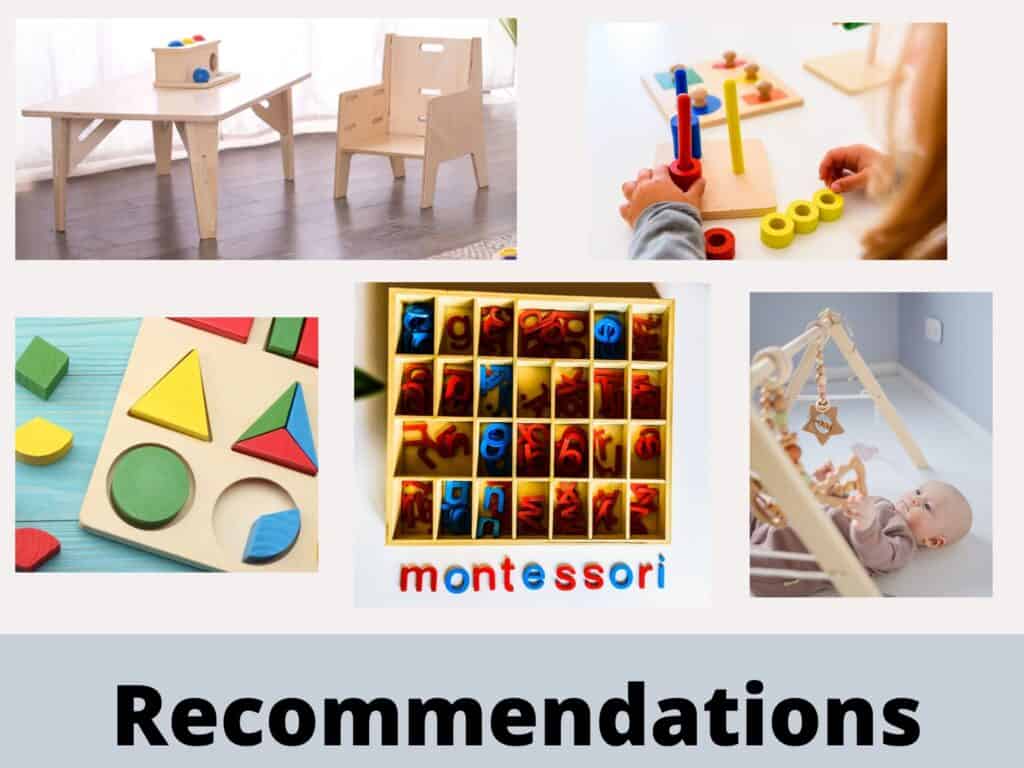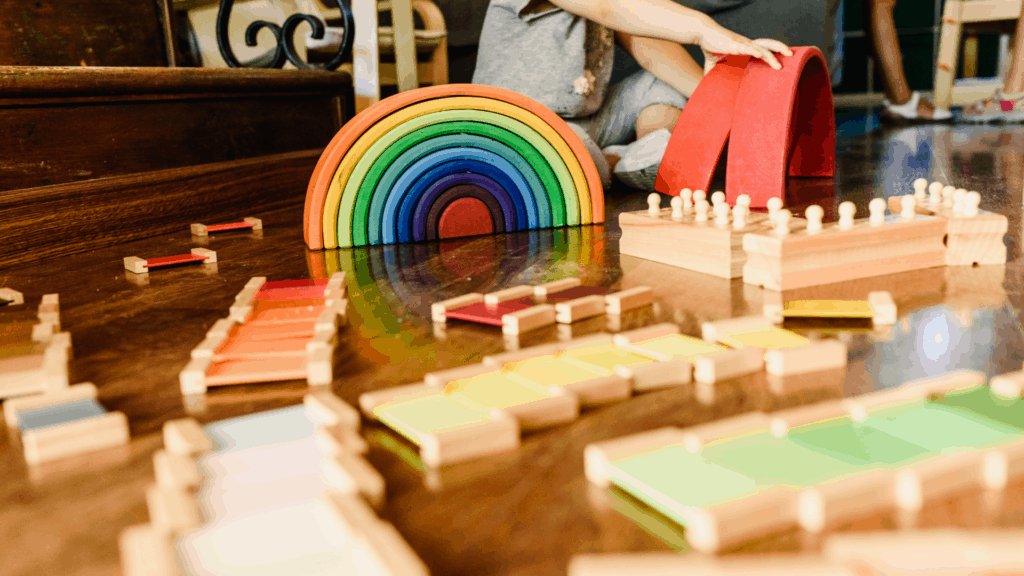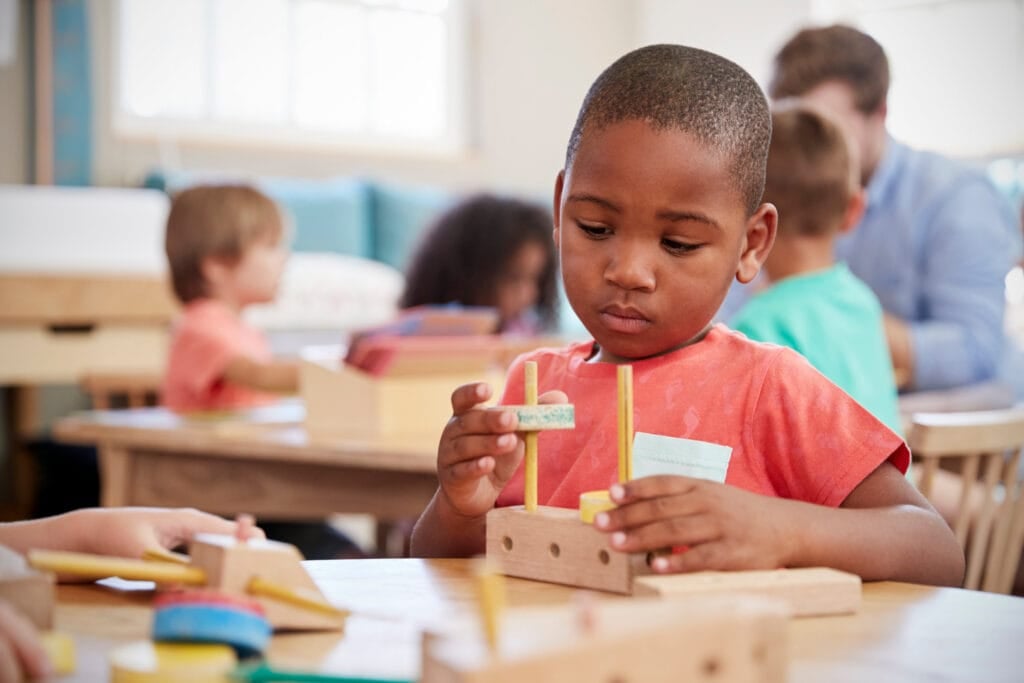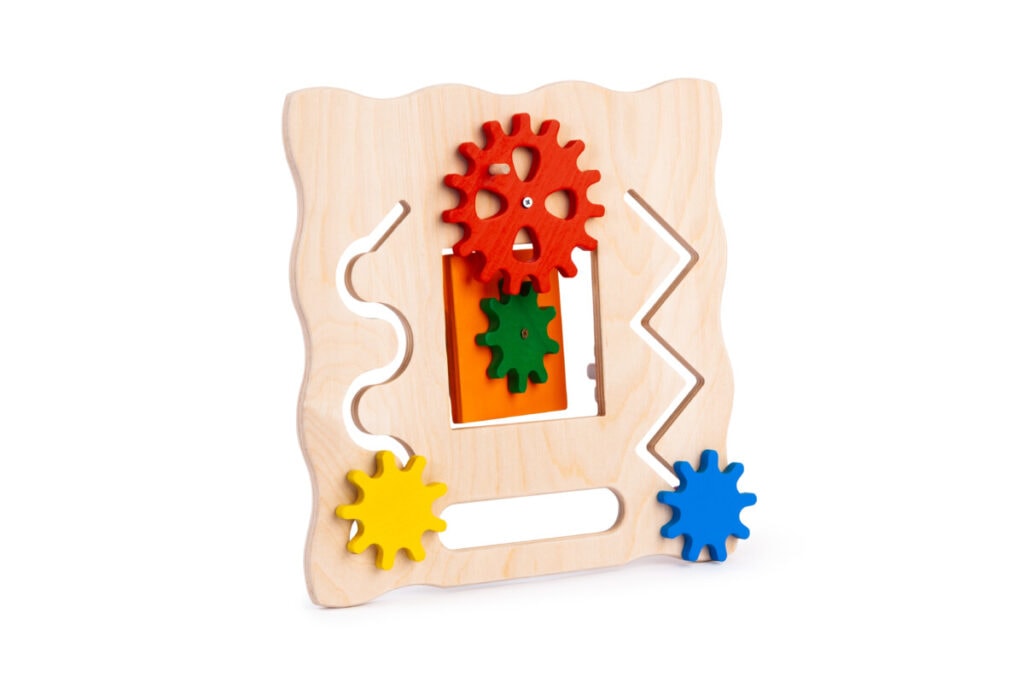When you think of a kitchen for kids, you probably think of the colorful plastic stove and fridge stocked with fake fruits and vegetables that you might have played with as a child. On the other hand, a
The best
Keep reading to learn why
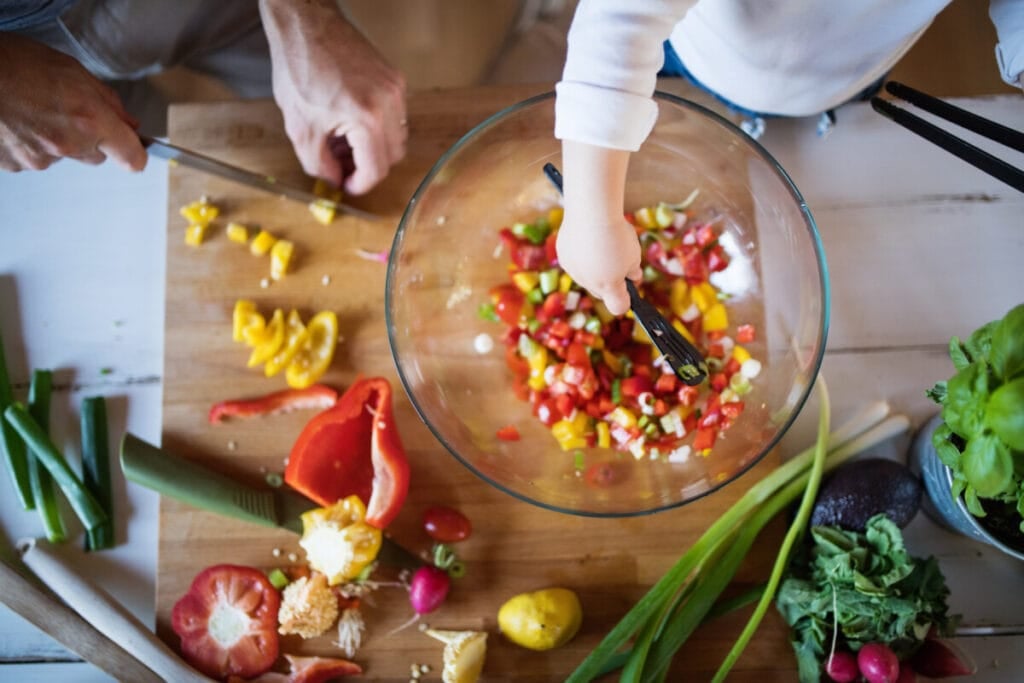
Benefits of Practical Life Activities
Having a kitchen set up for your kids opens up so many great opportunities for practical life activities. Preparing their own snack, washing their hands, and making healthy food choices are all great examples of activities that children can do to learn self-care as part of practical life.
Caring for yourself is one area of practical life practice. Practical life activities curated to the development of a child create opportunities for independence and learning. Learning through real-life activities that the child sees adults do regularly, and will eventually perform regularly themselves, helps the child understand the importance of the activity while also giving them added confidence.
There are lots of different educational activities for kids, so why are practical life activities so beneficial? First of all, the child is learning a skill that they will need to know for the rest of their life. Beyond that, these activities will help their physical development. Gross motor skills, dexterity, and various muscle movements are part of many daily life activities. Practicing performing these tasks will help the child improve their coordination.
Practical life activities are also great for emotional development. They will develop self-confidence as they can care for themselves, and they will also become more independent. A huge goal of

Montessori for Today picks out furniture, educational tools, toys and lifestyle items that we think are the best and most exciting, based on independent research and careful consideration. On some occasions we earn revenue (at no additional cost to you) if you click the links and buy the products. But this doesn’t affect what we choose to highlight and we will never let it bias our coverage.
Mentally, real-life activities will increase your child’s attention span. Especially the first few times, learning a new skill will likely be frustrating at some points. Encouraging persistence and concentration will help the child to have greater patience with themselves and have a longer attention span. You can teach all sorts of traditional school subjects through these activities. While cooking with your child, you can practice counting items, explain the life span of plants, or practice reading skills on a recipe. (Source)
Guidelines for Choosing Tools and Utensils
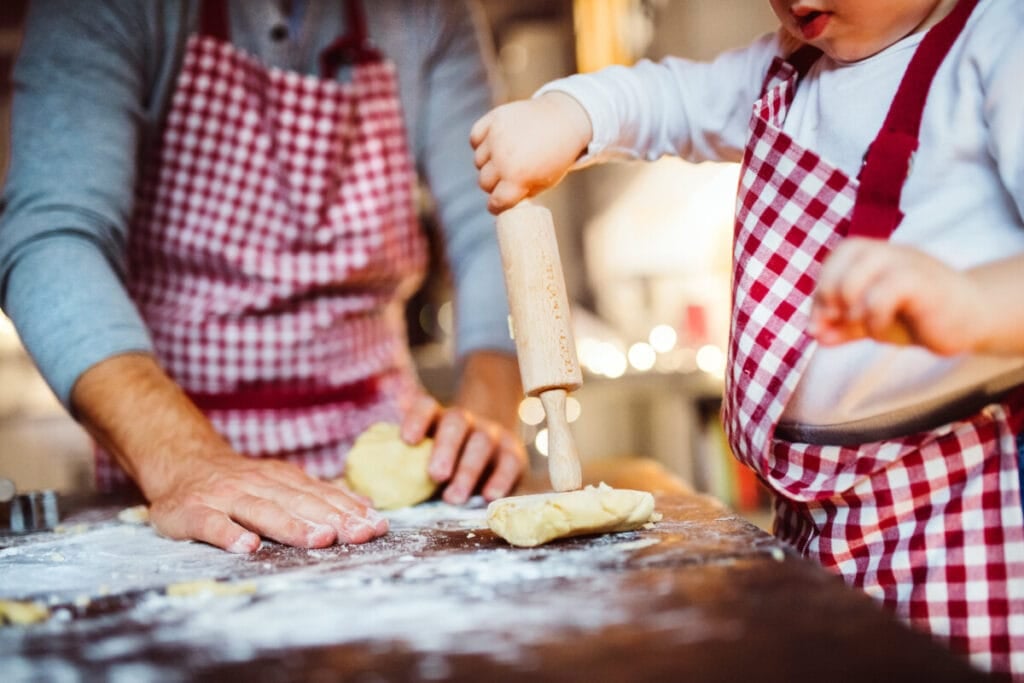
When creating a children’s Montessori kitchen space, you have to find a balance between making the kitchen safe and appropriate for young ages, while also ensuring that the space enables practical life activities.
You should avoid, or at least limit access to, anything sharp and any heat sources. Generally, you want to make the kitchen space accessible to your kids whenever they want, especially if you are having them practice self-care by following hunger cues and selecting and preparing their own snacks. However, any potentially dangerous tools should be kept out of reach and only used with your direct supervision.
There are plastic and wooden knives that are great options for safely allowing your child to chop and slice independently. It is simplest to avoid any food preparation that involves heat. Although eventually, you will want to teach your child more advanced skills as they get older. Heat should be introduced with close supervision and assistance. This is also a great opportunity to teach about safety and the science of heat. As they get older and practice more, cooking with heat can become a regular part of your

When choosing tools and utensils, you should get things that are small enough to be effectively held and used by your children. Having small utensils makes it easier for your child to move and handle them, increasing their independence and self-confidence. Having specific tools just for them can also help the child feel more important and more excited about the activity. When the child has appropriately sized tools they will be more likely to be successful in their kitchen activities. (source)
When you are creating a
Montessori kitchen essentials
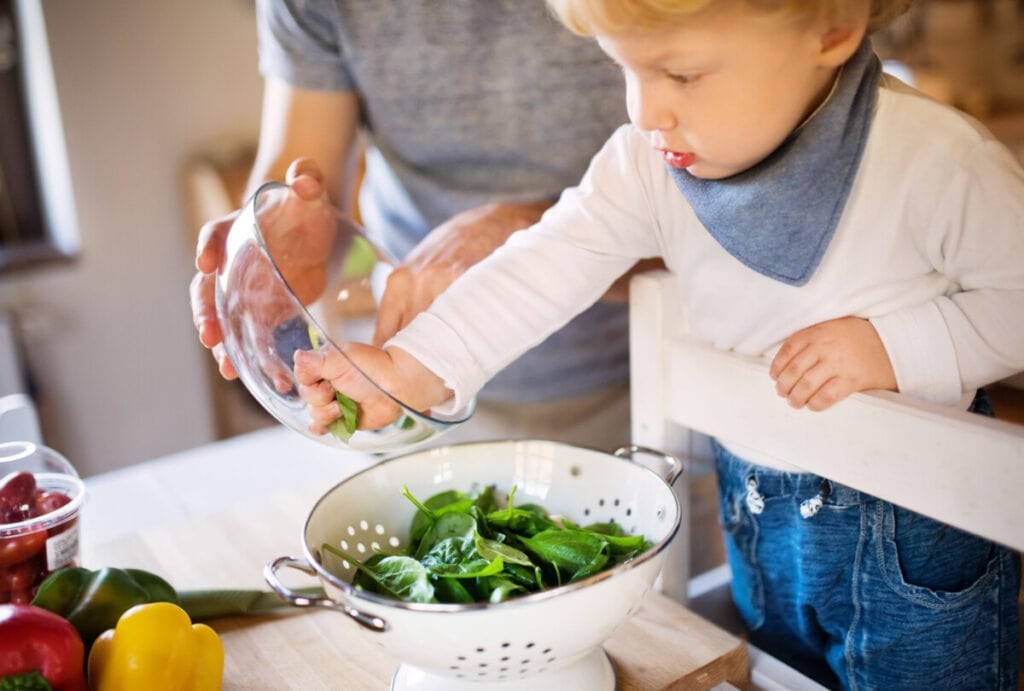
The first essential you will need is a way for your child to be able to reach and access their kitchen space. This can be accomplished in two ways. The cheapest and easiest solution is to get a stool or kitchen tower that will allow your child to safely stand with the counter at waist height.
Another option is to create a separate kids’ height counter and cupboard space. You can stock a play kitchen with all of the tools and ingredients that they need for independent learning and cooking. This might not work for every kitchen and budget, but it allows a lot more independence. Some play kitchens may even attach to the end of your kitchen island to make sure that your kids are a direct part of the kitchen environment.
Linens:
- A child-size apron helps your child stay clean and helps them prepare for a shift in activities.
- Once you introduce heat, you will want to make sure that your child is protected with oven mitts that will actually fit their little hands.
- Hand towels, washcloths, and potholders can be very useful, but whatever ones you typically use in your kitchen will be great for your child as well.
Containers:
- Measuring cups are great for practical math practice. To maintian practicality, use real measuring cups rather than toy subsitiutes. Regular measuring cups with handles will be a great size for children’s hands.
- A small metal pitcher will help them practice pouring, and won’t break like a glass or ceramic one.
- To promote independence, you can include a small section of snacks that are always avaible to your child. Small storage containers will keep things organized and fresh, and clear containers will make it easier for them to know what their options are.
Knives:
Cutting and chopping can be one of the most difficult activities to navigate in a

- You can try a wooden knife with a large handle for chopping.
- For more delicate slicing and higher dexterity, try plastic knives that mimic the shape of a regular knife.
- A crinkle patterned knife can increase interest and will also make it easier for kids to handle slippery fruits and vegetables after they have been chopped.
- Peeler
- Shredder/grater
- A small plastic cutting board with a handle is light and easy to move, clean, and use. Rubber around the edge will stop the board from moving and make using sharp tools much safer.
- This kit has a selection of different knives and cutting board.
General Utensils:
- Whisk
- Tongs
- Spatulas
- Slotted spoons
- Mixing and serving spoons
- Colander
- Mixing and serving bowls
- Dishes and silverware
- Here is a set that includes many of the utensils you will need.
